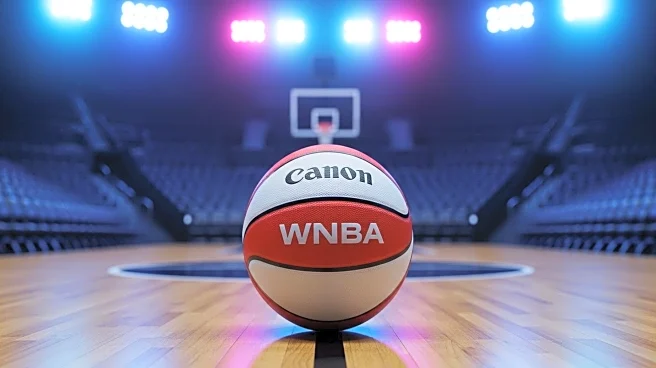What's Happening?
The WNBA is facing a critical moment as its collective bargaining agreement (CBA) is set to expire at the end of the month. Napheesa Collier, a prominent player and vice president of the players' association, has publicly criticized WNBA Commissioner Cathy Engelbert for a lack of accountability and transparency in the league. Collier's remarks come after a personal meeting with Engelbert, where she expressed concerns about officiating and player compensation. Engelbert has responded by acknowledging the need for better communication and promising to address players' concerns. The league is currently negotiating a new CBA, with players seeking increased salaries and benefits.
Why It's Important?
The ongoing dispute between Collier and Engelbert highlights significant issues within the WNBA, including player compensation and league transparency. As the CBA negotiations continue, the outcome will have a substantial impact on players' earnings and the league's future. The players' demand for higher salaries reflects broader concerns about equity and fair compensation in women's sports. The situation also underscores the importance of trust and communication between league officials and players, which are crucial for the league's growth and stability.
What's Next?
With the CBA set to expire soon, the WNBA faces potential challenges, including a lockout if negotiations fail. The players' association, led by figures like Collier, is pushing for significant changes, and their stance could influence the league's direction. Engelbert's ability to address players' concerns and rebuild trust will be critical in reaching a new agreement. The league's future depends on finding a balance between players' demands and the league's financial realities.
Beyond the Headlines
The conflict between Collier and Engelbert also raises questions about the role of alternative leagues like Unrivaled, co-founded by Collier. As players seek better compensation, leagues like Unrivaled could become more attractive, potentially challenging the WNBA's dominance. The situation highlights the evolving landscape of women's sports, where players are increasingly advocating for their rights and exploring new opportunities.









